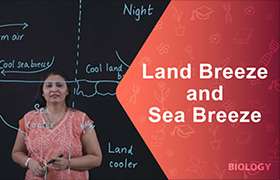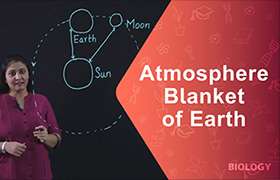CBSE Class 9 Answered
The Water Cycle (also known as the hydrologic cycle) is the whole process in which water evaporates and falls on the land as rain and later flows back into the sea via rivers.In other words, it is the journey water takes as it circulates from the land to the sky and back again.
The Sun's heat provides energy to evaporate water from the Earth's surface (oceans, lakes, etc.). Plants also lose water to the air (this is called transpiration). Rising air currents take the vapor up into the atmosphere where cooler temperatures cause it to condense and form tiny droplets in clouds. When the clouds meet cool air over land, precipitation (rain, sleet, or snow) is triggered, and water returns to the land (or sea). Some of the precipitation soaks into the ground. Some of the underground water is trapped between rock or clay layers; this is called groundwater. Some water infiltrates deep into the ground and replenishes aquifers, which store huge amounts of freshwater for long periods of time. Some infiltration stays close to the land surface and can seep back into surface-water bodies (and the ocean) as groundwater discharge. Some groundwater finds openings in the land surface and emerges as freshwater springs. But most of the water flows downhill as runoff (above ground or underground), eventually returning to the seas as slightly salty water. As water flows through rivers, it picks up small amounts of mineral salts from the rocks and soil of the river beds. This very-slightly salty water flows into the oceans and seas.
Some precipitation falls as snow and can accumulate as ice caps and glaciers, which can store frozen water for thousands of years. Snowpacks can thaw and melt, and the melted water flows overland as snowmelt.
The figure can be taken from NCERT or from the following site.
http://www.enchantedlearning.com/subjects/astronomy/planets/earth/Watercycle.shtml











